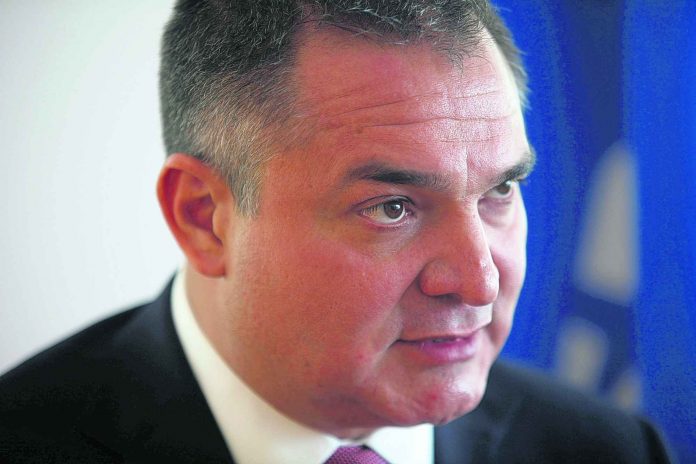Mexico confirmed Monday it has asked the United States to extradite former security chief Genaro García Luna, who currently faces trial in the U.S. for allegedly protecting a drug gang.
The Foreign Relations Department said the request had been formally made, but offered no further details.
Mexico has said in the past that it prefers Mexican officials be tried in their own country, and bristled over the recent arrest of the country’s former defense secretary, who the U.S. later turned over to Mexico.
Mexico’s Attorney General’s Office issued an arrest warrant for García Luna in November on charges of illegal enrichment.
García Luna served as security chief under former President Felipe Calderón from 2006 to 2012 as the leader in the government’s fight against organized crime.
He was arrested in December in Texas and pleaded not guilty last month to drug trafficking charges, including a new one of engaging in a continuing criminal enterprise.
U.S. prosecutors accuse him of accepting tens of millions of dollars in bribes — often stuffed in briefcases full of cash — to shield the Sinaloa cartel from law enforcement.
In January, the former Mexican official pleaded not guilty to charges of cocaine trafficking conspiracy and a false statement.
It wasn’t clear if the Mexican officials hope to bring García Luna back before a U.S. trial or before any potential prison time there. Some past Mexican officials were tried at home after serving a sentence in the U.S.
U.S. authorities have estimated a trial there could take two or three months.
The action follows a U.S. decision to drop charges against another former top Mexican official accused of drug links, ex-Defense Secretary Salvador Cienfuegos, and leave any prosecution up to Mexico, an extraordinary reversal that followed an intense pressure campaign from Mexico.
The day after Cienfuegos was returned to Mexico, Foreign Secretary Marcelo Ebrard said that Mexico wants any trials of allegedly corrupt public officials to take place in Mexico rather than abroad, though he distinguished the cases of Cienfuegos and García Luna, noting the latter had been a resident of the U.S.




















